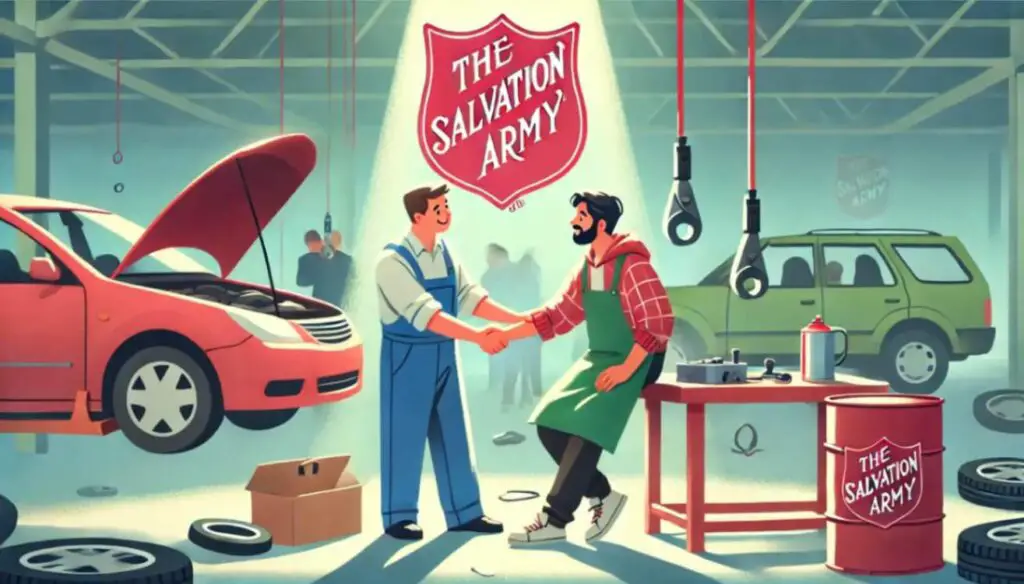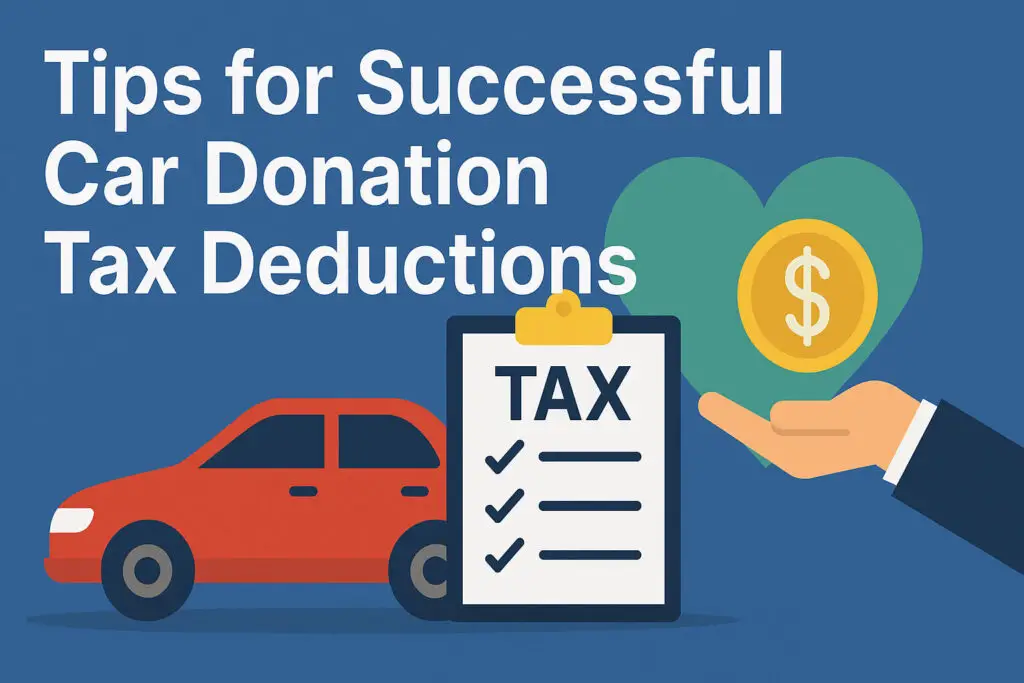I. Introduction
A. The Challenge of Obtaining a Free Car as a Homeless Mom
Being a homeless mother presents distinct transportation challenges that can significantly impact daily life. The absence of a car can hinder access to critical services and opportunities, including:
- Employment: Without reliable transportation, it becomes challenging to commute to work, limiting job opportunities and economic stability.
- Medical Care: Access to healthcare services, doctor’s appointments, and medical facilities can be compromised, potentially affecting both the mother’s and children’s health.
- Education: Ensuring that children attend school regularly becomes difficult, potentially affecting their educational development.
- Basic Necessities: Simple tasks like grocery shopping, accessing food banks, or buying essentials become more complicated and time-consuming.
B. Available Resources and Options for Transportation Assistance
Fortunately, several car donation and transportation assistance programs aim to alleviate these challenges for homeless mothers. These programs are designed to provide access to free cars or alternative transportation solutions. Here, we’ll explore these options in depth:
- Car Donation Programs:
- Car donation programs involve organizations or individuals donating vehicles to those in need. Some prominent programs include:
a. 1-800-Charity Cars:
- Eligibility Criteria: Typically, individuals must demonstrate financial hardship or crisis, providing documentation if necessary.
- Profile Creation Process: Applicants visit the program’s website and complete an application, sharing their compelling story and explaining why they need a car.
b. Good News Garage:
- Operating Region: This program primarily serves New England states.
- Priority for Single Mothers on Public Assistance: Single mothers on public assistance often receive priority. Eligibility details are available on their website.
c. Wheels From The Heart:
- Focus on Single Mothers with Children: This organization specifically targets single mothers with kids.
- Operating Regions: Wheels From The Heart operates in various states; potential applicants should inquire about eligibility.
- Transportation Assistance Programs:
- Transportation assistance programs offer various solutions for affordable and accessible transportation:
a. Public Transportation:
- Many cities offer discounted or free bus passes for low-income individuals. Eligibility requirements and application processes may vary by location.
b. Ridesharing Services:
- Utilizing ridesharing platforms like Uber or Lyft can provide on-demand transportation. Consideration of costs is crucial, and comparing them with other options helps ensure affordability.
c. Community Carsharing Programs:
- Community carsharing programs enable individuals to rent cars by the hour or day. Researching local providers can help you find affordable rates and availability.
- Earning a Car:
- Some programs focus on assisting individuals in obtaining cars through different means:
a. Car Buying Assistance Programs:
- Non-profit organizations can help individuals with poor credit or limited income access financing options, overcoming credit challenges.
b. Work Programs:
- Charities or social service agencies may offer car ownership incentives as rewards for participation in work or training programs.
- Additional Tips:
- Networking with local resources, such as homeless shelters, social service agencies, and community centers, can provide valuable information on available transportation assistance programs and car donations.
- When applying for assistance, building a strong case is crucial. Clearly communicate your transportation challenges, emphasizing how having a car can positively impact your life, such as facilitating commutes to work or medical appointments.
- Seeking support from friends, family, or community organizations can be instrumental in navigating transportation options. Collaboration with your network can help you explore and access suitable transportation solutions
II. Car Donation Programs
A. Public Transportation
Public transportation plays a crucial role in providing affordable and accessible mobility options for individuals, including homeless mothers. Here are some key aspects of public transportation assistance programs:
- Discounted or Free Bus Passes in Many Cities:
- Numerous cities across the United States offer discounted or free bus passes for low-income individuals. These programs aim to make public transportation more accessible to those who face financial challenges.
- Eligibility criteria for these discounted or free passes may vary by city and transit agency. Common qualifications often include demonstrating low income or participation in specific government assistance programs.
- It’s essential to check with your local transit authority or city government to determine whether such programs exist in your area and how to apply for them.
B. Ridesharing Services
Ridesharing services like Uber and Lyft provide on-demand transportation options, which can be particularly useful for homeless mothers. Here’s what you should know:
- Using Uber or Lyft for Occasional Transportation:
- Uber and Lyft offer convenient solutions for occasional transportation needs. Users can request rides through mobile apps, and drivers pick them up at specified locations, often providing a more flexible alternative to traditional public transportation.
- These services are available in many urban and suburban areas, making them accessible to a broad range of users, including homeless mothers.
- Consideration of Costs:
- While ridesharing services offer flexibility, it’s essential to consider costs, especially for those facing financial challenges. The cost of Uber or Lyft rides can add up, particularly if used frequently.
- To make informed decisions, compare the costs of ridesharing with other transportation options, such as public transit or community carsharing programs, and assess affordability based on your budget.
C. Community Carsharing Programs
Community carsharing programs are designed to provide individuals with access to vehicles for short-term use, offering a practical solution for those without their cars. Here’s what you should know about these programs:
- Renting a Car by the Hour or Day:
- Community carsharing programs allow individuals to rent cars for short periods, typically by the hour or day. Users can reserve vehicles through the program’s platform or mobile app.
- This model provides flexibility, as users can access a car when needed for specific tasks, such as grocery shopping, job interviews, or medical appointments.
- Affordable Rates and Availability:
- Community carsharing providers often offer competitive and affordable rates, making it an accessible option for individuals with limited budgets.
- Availability can vary depending on the location and the specific carsharing service operating in your area. Research local providers to determine rates, vehicle availability, and any membership requirements.
In conclusion, transportation assistance programs, including discounted public transportation, ridesharing services like Uber and Lyft, and community carsharing programs, offer valuable options for homeless mothers to access transportation when needed. These programs aim to address the unique challenges faced by individuals without personal vehicles, providing affordable and flexible solutions to help them access essential services and improve their quality of life.
IV. Earning a Car
A. Car Buying Assistance Programs
Car buying assistance programs are designed to help individuals with poor credit or limited income acquire vehicles, even when they face credit challenges. Here’s a closer look at these programs:
- Non-profit Organizations Helping Individuals with Poor Credit or Limited Income:
- Several non-profit organizations specialize in assisting individuals who have low income or poor credit histories. These organizations understand the importance of reliable transportation in achieving financial stability and independence.
- The assistance provided by these organizations can vary but often includes financial counseling, advice on budgeting, and guidance on finding affordable car financing options.
- Some non-profit organizations may even have partnerships with local car dealerships or financial institutions to provide favorable financing terms to eligible individuals.
- To access these programs, individuals can research and contact non-profit organizations in their area that focus on financial empowerment and car ownership assistance.
B. Work Programs
Work programs offered by charities or social service agencies provide incentives for participants to attain car ownership. These programs aim to remove transportation barriers that can hinder individuals from accessing employment or training opportunities. Here’s what you need to know:
- Charities or Social Service Agencies Offering Car Ownership Incentives:
- Certain charities and social service agencies operate programs that incentivize individuals to participate in work or training activities by offering car ownership as a reward.
- Participants in these programs may work toward specific goals, such as completing job training or achieving employment milestones. Upon meeting these objectives, they become eligible for car ownership incentives.
- Car ownership incentives can vary and may include access to donated vehicles, assistance with car financing, or support with down payments.
- To explore such programs, individuals can contact local charities, workforce development agencies, or social service organizations. These organizations can provide information on available work programs and their eligibility requirements.
In summary, car buying assistance programs and work programs offer valuable avenues for individuals with poor credit or limited income, including homeless mothers, to earn a car. These initiatives recognize the role of reliable transportation in gaining access to employment, training, and economic stability. By reaching out to non-profit organizations specializing in financial empowerment and exploring work programs offered by charities and social service agencies, individuals can work toward car ownership and overcome transportation challenges.
V. Additional Tips
A. Persistence in the Pursuit of a Free Car
When seeking a free car as a homeless mother, persistence is key. The journey to secure reliable transportation may present challenges, but remaining steadfast in your efforts is essential. Understand that it may take time and dedication to achieve your goal of obtaining a vehicle.
B. Encouragement to Explore Available Options
It’s important to explore all available resources and programs diligently. The path to obtaining a free car may involve researching various assistance programs, contacting local organizations, and networking within your community. By taking the time to investigate your options, you increase your chances of finding a suitable solution for your transportation needs.
C. Finding a Suitable Solution for Transportation Needs for Homeless Moms
With determination and the right assistance, homeless mothers can find a transportation solution that enhances their quality of life. Reliable transportation opens doors to employment, medical care, education, and other essential services, ultimately contributing to stability and independence. By leveraging available resources, building a strong case, and seeking support from your network, you can work towards overcoming transportation challenges and securing a brighter future for yourself and your family.
VII. Frequently Asked Questions (FAQs)
A. What are the eligibility criteria for 1-800-Charity Cars?
The eligibility criteria for 1-800-Charity Cars typically require individuals to demonstrate financial hardship or crisis. Specific requirements may vary by region and organization. To determine your eligibility and learn about any regional requirements, it’s advisable to visit their website or contact them directly.
B. How does the profile creation process work for 1-800-Charity Cars?
The profile creation process for 1-800-Charity Cars involves visiting their website and completing an application. During this application, you are encouraged to share your personal story, explaining why you need a car. This narrative should detail your transportation challenges and highlight how owning a car would positively impact your life and the lives of your family members.
C. What is the operating region of Good News Garage?
Good News Garage primarily serves the New England region, including states such as Massachusetts, Vermont, New Hampshire, and others. Their services are concentrated in this area, so it’s essential to verify their specific operating locations and eligibility details on their official website.
D. Why do they prioritize single mothers on public assistance at Good News Garage?
Good News Garage prioritizes single mothers on public assistance because they recognize the critical need for reliable transportation among this demographic. By giving priority to single mothers facing financial challenges, Good News Garage aims to empower them with the means to access employment, medical care, and essential services, ultimately improving their quality of life and the well-being of their children.
E. In which regions does Wheels From The Heart operate?
Wheels From The Heart operates in various states, but the specific regions they cover may vary. To determine if you are eligible for assistance and to inquire about the availability of their services in your area, it is recommended to contact the organization directly or visit their official website.
F. How can I access discounted or free bus passes for public transportation?
To access discounted or free bus passes for public transportation, you should:
- Check with your local transit authority or city government to determine if such programs exist in your area.
- Inquire about eligibility requirements, which may include demonstrating low income or participation in specific government assistance programs.
- Follow the application process specified by your local transit agency or city government to apply for discounted or free bus passes.
G. What should I consider regarding the costs of using Uber or Lyft for transportation?
When considering the costs of using Uber or Lyft for transportation, it’s crucial to:
- Compare these costs with other transportation options, such as public transit or carsharing programs, to assess affordability.
- Take into account factors like distance, frequency of use, and surge pricing during peak hours.
- Budget carefully to ensure that using ridesharing services aligns with your financial resources and needs.
H. How do community carsharing programs work, and where can I find them?
Community carsharing programs allow individuals to rent cars by the hour or day. To find and participate in these programs:
- Research local carsharing providers in your area.
- Check their rates, availability, and membership requirements.
- Sign up for the program, reserve vehicles as needed, and follow their booking and usage guidelines.
I. Which non-profit organizations provide assistance with obtaining car loans for individuals with poor credit or limited income?
Several non-profit organizations specialize in helping individuals with poor credit or limited income access car loans and financing options. To find such organizations, research and contact non-profits in your area that focus on financial empowerment, credit counseling, or assistance with auto financing.
J. What kind of work or training programs offer car ownership incentives?
Work or training programs that offer car ownership incentives can vary by location and organization. To explore these opportunities, contact local charities, workforce development agencies, or social service organizations in your area. These programs may reward participants with access to donated vehicles, car financing assistance, or support with down payments upon meeting specific goals or milestones.
K. How can I contact local resources such as homeless shelters for transportation assistance?
To contact local resources such as homeless shelters for transportation assistance:
- Search online for homeless shelters in your area and find their contact information.
- Call or visit the shelters to inquire about available transportation assistance programs and resources.
- Speak with staff members or volunteers who can guide you to the appropriate resources.
L. What information should I provide when explaining my need for a vehicle in car donation programs?
When explaining your need for a vehicle in car donation programs, provide detailed information about:
- Your transportation challenges and limitations.
- How the lack of a car affects your daily life, including access to employment, medical appointments, education, and essential services.
- The positive impact car ownership would have on your life and your family’s well-being.
M. How can I seek help from friends, family, or community organizations in navigating transportation options as a homeless mom?
To seek help from friends, family, or community organizations in navigating transportation options as a homeless mom:
- Openly communicate your situation and transportation needs to your support network.
- Share information about available resources and assistance programs you have researched.
- Collaborate with friends, family, and community organizations to explore and access suitable transportation solutions together, leveraging their assistance and guidance









